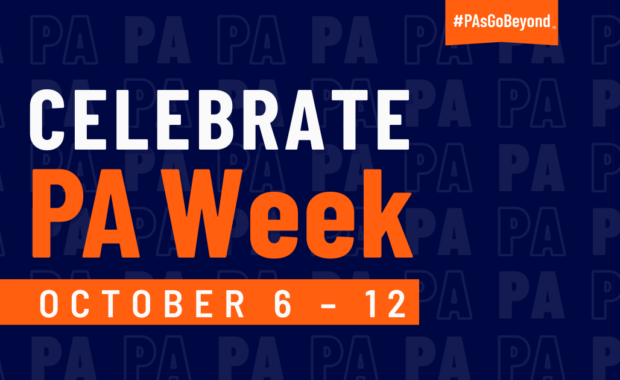Avoiding Conflict? Tips on Managing Uncomfortable Conversations
Recognize Conflict as an Opportunity
By Andrea Lowe, MHA, PA-C
July 23, 2019
As healthcare providers, we spend most of our time with our colleagues. We work with a diverse group of people and we all have preferred ways of doing things. Our jobs can be stressful and high-pressure. Our decisions and advice affect people’s lives and their well-being. It’s no surprise that conflicts arise in our work environments, and it’s not surprising that I’m often asked for advice on how to manage conflict professionally and beneficially at work.
A big part of managing conflict at work is recognizing that there are different points of view, and we are all better for being around others and exposing ourselves to new ways of thinking and doing things. We can agree that practicing PA teams have the same end goals: patient safety, optimal health outcomes, enhancing the patient experience, and more. Even on the most cohesive teams, conflicts will come up. When they do, consider them an opportunity and handle them in a constructive fashion.
[What PAs Want in the Workplace: Effective Conflict Management.]
Whether you are a line provider manager or an executive, anticipate conflicts. Prepare yourself to resolve conflicts at different levels of severity at every stage of your career. Develop skills in conflict management instead of ignoring it. Commit to training yourself – and others, if you can – to resolve conflict in productive and respectful ways. We are naturally inclined to avoid something that’s uncomfortable, but good things can come out of effective conflict management. Seek training on conflict management and crucial conversations early in your career so you can be proactive, not reactive, when conflict does occur.
A lot of early-career PAs ask me about how to effectively resolve conflict at work. I almost always refer them to a book that has really helped me throughout my career: “Crucial Conversations: Tools for Talking When the Stakes Are High.” The book offers the following advice for conflict management and resolution, and the following five-step framework has served me well:
- Analyze how the situation came to be.
- Understand your own role in the conflict.
- Maintain mutual purpose and mutual respect.
- Be prepared, open, and ready to apologize, if appropriate.
- Talk about solutions.
No matter where you are in your PA career, it’s not too late to seek out training on conflict management. When conflict does arise, remind yourself that the outcome will most likely be beneficial for the parties involved and the workplace. If you’re interested in conflict management and other executive leadership skills, consider attending CHLM’s Executive Leadership Conference, November 12 – 14, 2019. You’ll grow as a person and as a PA.
Additional Resources
Executive Leadership Conference 2019: What’s Crucial About Crucial Conversations
What PAs Want in the Workplace: Effective Conflict Management
Find Your Passion at Any Stage of Your PA Career
Thank you for reading AAPA’s News Central
You have 2 articles left this month. Create a free account to read more stories, or become a member for more access to exclusive benefits! Already have an account? Log in.



